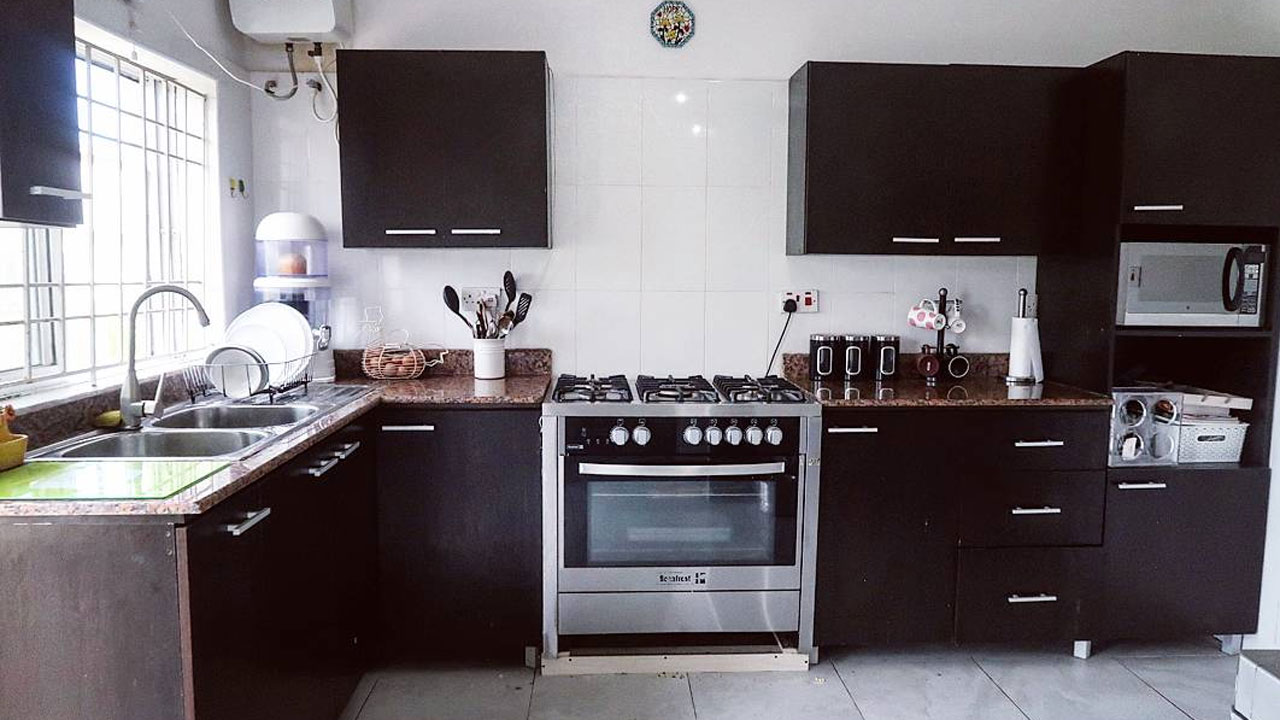
The kitchen is the heart of every home and what goes on in the kitchen can affect the family in a good way or bad way hence food safety cannot be ignored. Good food hygiene measures need to be put in place to ensure that food is safe, right from preparation to consumption. Below are some of the practice I ensure in my home, to prevent food poisoning and accidents in the kitchen; trust me, I have my ‘battle scars.’
Food Hygiene
. Wash hands thoroughly with soap and water before handling food – from preparation to consumption. Wash hands after sneezing, touching any body part, using the restroom, handling cleaning products, handling garbage, handling dirty kitchen equipment, handling raw meat, fish or poultry, handling dirty dishes… basically wash hands before every task.
. Always clean and sanitize cooking surfaces and equipment. Have designated cleaning cloths and pads for cleaning different areas.
* Use disposable washcloths or paper towel frequently in the kitchen to clean. Dishcloths and towels can easily carry and transfer bacteria.
* Kitchen sponges contain a lot of germs, boil kitchen sponges once a week to get rid of germs.
* If you have a cold, reduce your activity in the kitchen to minimize the possibility of spreading bacteria.
* Be sure to cover wounds and cuts to avoid contamination.
* Store cooked meals at the top shelve in the fridge to avoid being contaminated by drippings from uncooked food.
* Make sure cooked food is stored in the fridge within two hours of it being cooked.
* Keep perishable food, like dairy, meat, and eggs, in the refrigerator below 4 degrees Celsius. Keep hot foods at 60 degrees Celsius or hotter,
and keep frozen foods at -18 degrees or colder because bacteria grow rapidly between 60 degrees and 4 degrees.
* Always thaw food in the refrigerator, not left to defrost at room temperature over the counter top or kitchen sink.
* Food should be stored in airtight containers and not left exposed to the elements.
* Use separate cutting boards and knives for vegetables and for raw meat to avoid cross contamination. Also wash with hot soapy water and sanitize to totally get rid of bacteria.
* Always marinate food in the refrigerator and do not use left-over marinade that was used for raw food.
* Don’t place cooked food in the same container that was used to keep raw food if it has not been properly washed.
* Use only microwave approved storage containers. Takeout containers should not be reused, especially in the microwave.
Kitchen Safety
* Every kitchen should have a functioning fire extinguisher, because that it is the place with the most probable fire hazard.
* Spills should be cleaned immediately to avoid slipping and other accidents.
* Make sure hands are dry before using any electrical equipment in the kitchen including blenders and microwaves. Wet fingers plugging in a toaster may cause shocks.
* Make sure hair is pulled back and kept securely at the back. Finding hair in one’s food is a fast turn off and can be slightly repulsive.
* Clothing and accessories can present a cooking hazard. Make sure clothing is kitchen-compliant – no frills and belts – to avoid it getting caught in an accident. Wear neat and clean clothing. Take off jewellery as some can get in the way of cooking and cause serious accidents. Take for example, a bangle can get caught in the frying pan handle and cause it to spill on the cook. Wear well fitting, non-slip footwear in the kitchen.
* Keep explosive devices away from the kitchen. An example is a spray can – this can easily explode.
* Keep pot and pan handles away from the front of the cooker to avoid getting caught and spilling. This can be a major hazard.
* Use a splatter screen when frying to avoid oil accidents. Frying fish can cause a major oil burn hazard, so be sure to protect yourself.
* If you have children, use childproof locks for kitchen cabinets and also for the oven. Also ensure the kitchen door is always shut.
* Steam burns are dangerous, so ensure that care is being taken, before opening pot lids and containers from the microwave.
* Ensure that the right equipment is used for the right activity. For example, deep-frying in a small pot may cause spillage onto the cooker and result in a fire.
* All garbage cans should be emptied immediately after cooking.
* Also, remember to keep flammable items away from the cooker or beside it, they can start a fire.
[ad unit=2]






